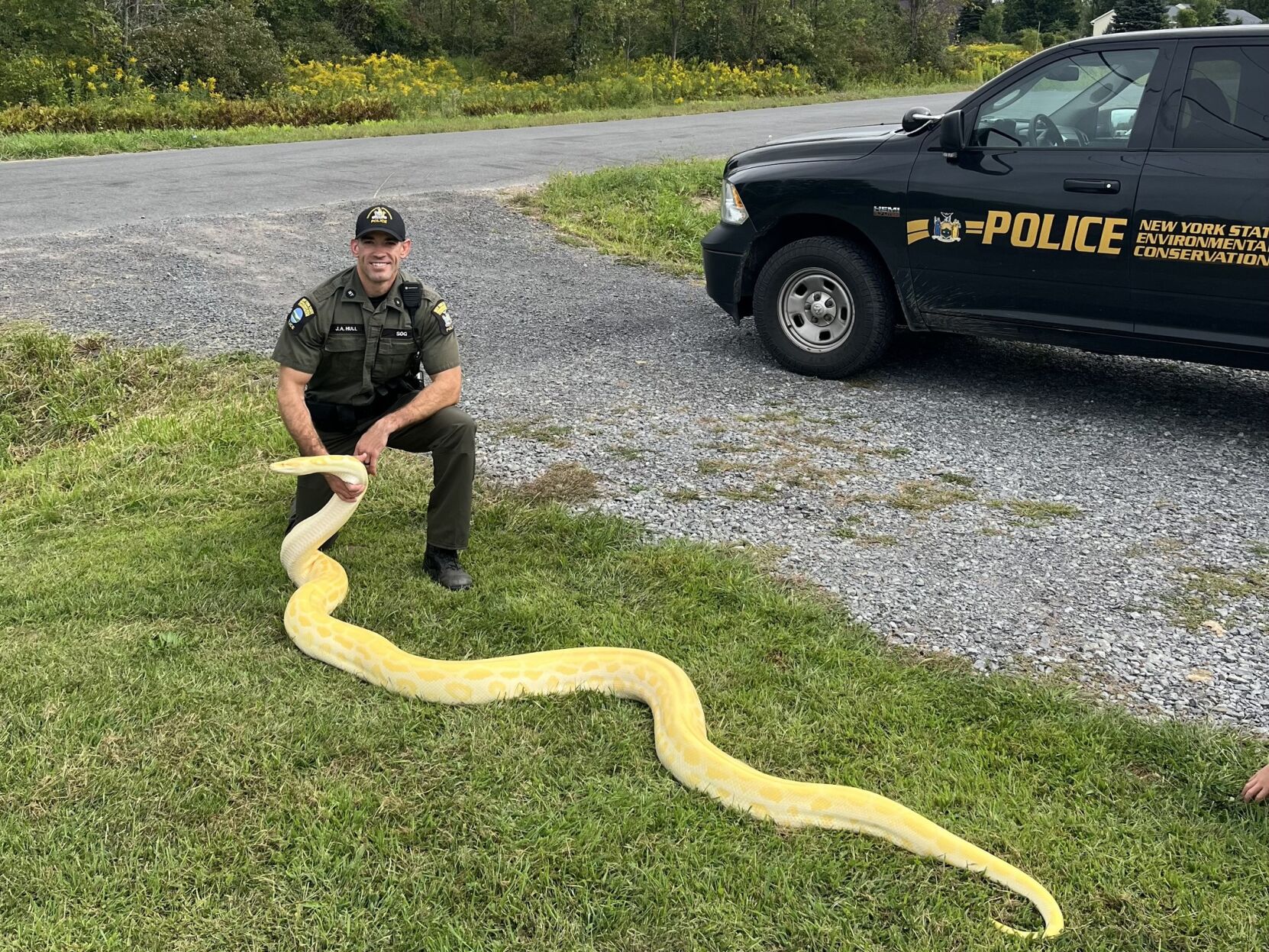
Illegal Burmese Python Seized in New Hartford, Relocated to Rome Zoo
Imagine this: a neighbor keeps a massive 13-foot snake. That was the unusual scenario in New Hartford recently, prompting a significant response from the New York State Department of Environmental Conservation. On August 28, Environmental Conservation Police Officer Jeff Hull was called in after a complaint about a large snake in the area. The concerned citizen suspected that the snake might be illegal, and after reviewing a photo of it, Hull confirmed their fears.
The snake in question was identified as a Burmese python, a species whose possession is prohibited in New York State without a special permit. This particular python was an impressive 13 feet 2 inches long and weighed a hefty 80 pounds. Despite its size, the snake was reported to be in good health, although it was living in a tank that was too small for its growing needs. The tank, only four to five feet in length, was clearly inadequate for an animal of this size.
Also Read:- John Lewis Revives Iconic "Never Knowingly Undersold" Promise to Reconnect with Customers
- Macron's Urgent Search for a New PM Amid French Political Stalemate
Upon investigation, the snake's owner admitted to Hull that they had underestimated how quickly the python would grow and acknowledged their inability to properly care for it. Consequently, the python was seized and transported to the Fort Rickey Discovery Zoo in Rome. This zoo was equipped with the necessary permits and facilities to house the large and potentially dangerous reptile.
The owner now faces legal repercussions, receiving citations for possessing wildlife without a permit and for harboring dangerous wildlife unlawfully. The Fort Rickey Discovery Zoo did not immediately respond to inquiries about their new resident, but the zoo’s role in taking in the python highlights their commitment to wildlife care and conservation.
This incident underscores the importance of understanding and adhering to wildlife regulations, particularly for exotic pets that can pose risks to both their owners and the public. It also raises awareness about the responsibilities associated with caring for such animals and the potential legal consequences of failing to comply with state laws.
Read More:

0 Comments